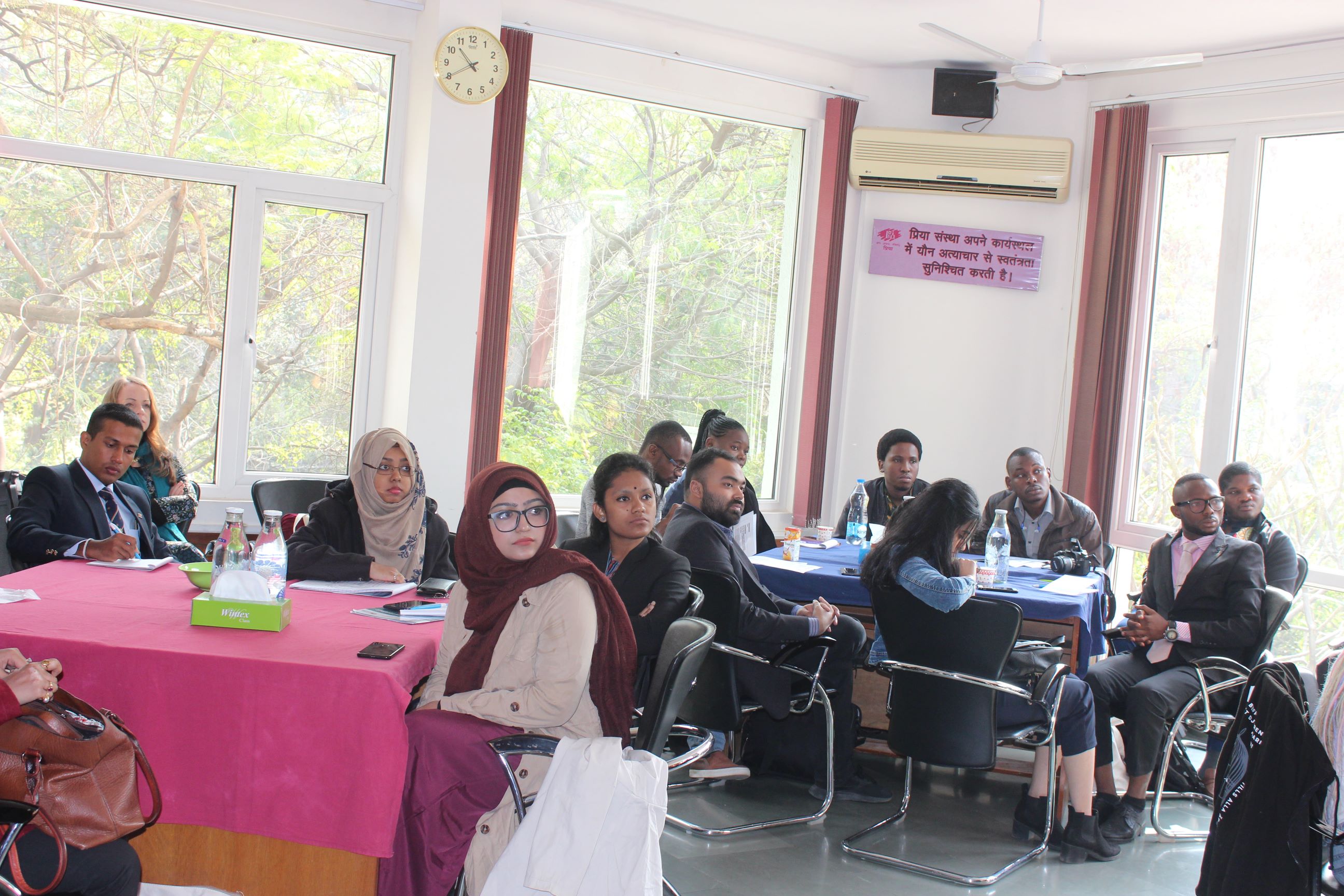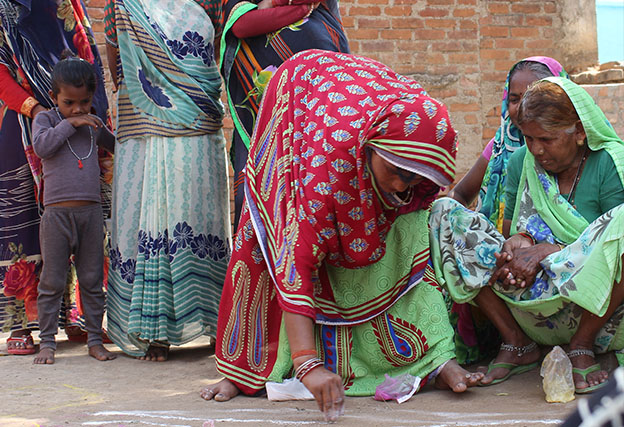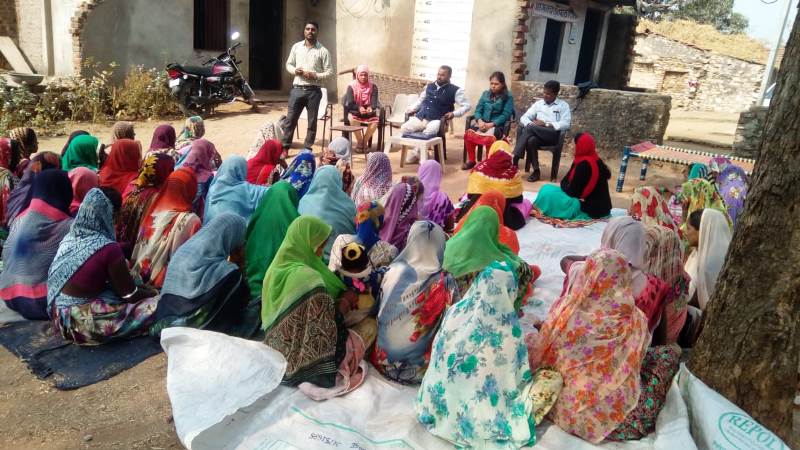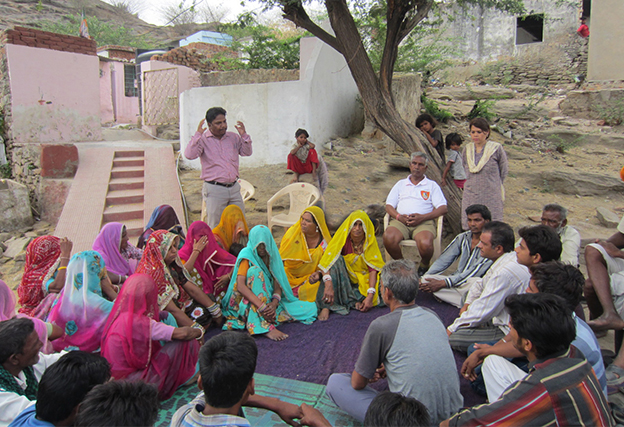
India’s quest for sustainable development and democratic governance is challenged by growing inequalities, changing climate, and mounting exclusion. The non-profit sector is confronted with multi-faceted challenges including access to flexible resources and spaces. Effective contributions of the non-profits in promoting empowerment and participation of the marginalised communities depend on the organisations’ ability to become more agile, adaptive, and strategic.
- Teacher: Harshita Umrao
- Teacher: Admin User
4
5 Weeks

The course on IPPR is relevant to the students, research scholars, policy makers, and development professionals from the CSOs, CSR programmes and donor agencies willing to develop their understanding and skills on conducting community based participatory research. The course is based on the knowledge resource and expertise developed at PRIA over the four decades.
- Teacher: Kaustuv Bandyopadhyay
- Teacher: Harshita Umrao
- Teacher: Admin User
4
5 Weeks

Governance is realised by the citizens in the form of access to services such as health, education, sanitation, registration documents for identification, transportation and so on. The effectiveness and relevance of these services determine the quality of governance systems. Access of these services for poor, vulnerable and marginalised is particularly difficult and they are either paying for sub-standard services or are deprived of services altogether. This has led to the emergence of social accountability practices to hold people in the governance system, organisations and institutions answerable to this lack or inefficiency. However, any form of accountability is expected to work when citizens are able to make demands from powerful institutions.
Hence, the workshop on ‘Social Accountability and Civic Engagement’ aims to equip the learners with the approaches of building accountability relationships between citizens and governance institutions driven by citizen participation.
4
5 Weeks

With rapid economic growth, agricultural-to-industrial and rural-to-urban transitions, and inadequate and weak regulatory mechanisms, India faces many environmental challenges, which are affecting the health and quality of life of its population. Improving environmental health research and its translation to practice in India is essential to not only address the environmental health burden of disease, but also to meet India’s SDG targets.
4
5 Weeks
The changing environmental context and the internal complexity of the non-profit sector have necessitated improving the internal capacity to respond strategically. It will be possible for non-profits to sustain and enhance their organisational achievement further and fulfil their chosen mission in the changing context only when they can anticipate and systematically respond to rapid, pervasive and discontinuous environmental changes.
- Teacher: Kaustuv Bandyopadhyay
- Teacher: Admin User
4
5 Weeks
How can we measure development? In recent years, concerns regarding effective management and a result-oriented approach to development projects and programs have received enormous attention. The discourse has gained further momentum with the adoption of Sustainable Development Goals (SDGs), Targets and Indicators. The quest for the impact of development interventions has been intensified as the message “Leaving No One Behind” gets loud and clear. Participatory Monitoring and Evaluation (PM&E) is an important process that enhances the relevance, effectiveness, and sustainability of development programs. It helps organisations and institutions improve their functioning.
- Teacher: Admin User
4
5 Weeks
පාඨමාලාව පිළිබඳ
සංවර්ධනය මැන බැලිය හැක්කේ කෙසේද? සංවර්ධන ව්යාපෘති හා වැඩසටහන් සම්බන්ධයෙන් වන සඵලදායී කළමනාකරණ සහ ප්රතිඵල දිශානගත ප්රවේශ පිළිබඳව මෑතක සිට වැඩි සැලකිල්ලක් යොමුවන ආකාරය දැකිය හැකිය. තිරසර සංවර්ධන අභිමතාර්ථ, ඉලක්ක සහ දර්ශක හඳුන්වාදීමත් සමඟ
මේ සම්බන්ධයෙන් වන කතාබහට වැඩි ඉඩක් වෙන්ව ඇත. “කිසිවෙකු මඟ නොහැරුණු” යන පණිවුඩය වැඩි වශයෙන් ඇසෙන හා දැනෙන තත්ත්වයක් නිර්මාණය වීමේ ප්රතිඵලයක් ලෙස සංවර්ධිත මැදිහත්වීමේ බලපෑම් සොයා යාම පුළුල් වී තිබේ. සංවර්ධන වැඩසටහන්වල අදාලත්වය, සඵලදායී බව මෙන්ම තිරසර බව ඉහළ නැංවීම සඳහා සහභාගීත්ව අධීක්ෂණය සහ ඇගයුම් ක්රියාවලිය අතිශයින්
වැදගත් වේ. විවිධ සංවිධාන හා ආයතනවලට සිය කාර්යයන් වර්ධනය කර ගැනීමට එමඟින් අවස්ථාව සැලසේ.
යම් ව්යාපෘතියක අධීක්ෂණ, ඇගයුම් සහ බලපෑම් තක්සේරුකරණ ක්රියාවලිය සඳහා සහභාගීත්ව ප්රවේශයක් අනුගමනය කිරීමෙන් එහි ප්රධාන කොටස්කරුවන්ගේ, එනම් ප්රජාවේ හෝ ව්යාපෘතියේ ප්රතිලාභීන්ගේ, සක්රීය සහභාගීත්වය ලබා ගැනීමට පහසුකම් සලසයි. මෙවැනි ප්රවේශ විවිධ සංවිධානවල ශක්තිමත්භාවයට මෙන්ම ආයතනික අධ්යයනයන් සිදු කිරීමට ඉවහල් වන අතර විවිධ පරාසවල සංවිධාන සඳහා අනුගමනය කිරීමේ හැකියාව ද පවතී.
සංවර්ධනය මැනීම: සහභාගීත්ව අධීක්ෂණය, ඇගයුමට ලක් කිරීම සහ බලපෑම් තක්සේරුකරණය මැයෙන් වන මෙම පාඨමාලාව විවිධ සංවිධාන හා වැඩසටහන් සහභාගීත්ව ප්රතිපත්තියක් යටතේ කළමනාකරණය කිරීමේදී වෘත්තිකයන්, වැඩිහිටි අධ්යාපනඥයින්, පර්යේෂකයන්, සම්පත්දායකයන් සහ ප්රතිපත්ති සම්පාදකයන් මුහුණ දෙන සංකල්පීය හා ප්රායෝගික ගැටළු රැසක් පිළිබඳව තතු පහදනු ලබයි. එහි ඉගෙනුම් ඒකක සහ ක්රියාකාරකම් මඟින් සහභාගීත්ව අධීක්ෂණය, ඇගයුමට ලක් කිරීම සහ බලපෑම් තක්සේරුකරණය සම්බන්ධයෙන් වන විවිධ කතිකාවන් සහ දෘෂ්ටිකෝණ පිළිබඳ සාධනීය මාර්ගගත අධ්යයන පරිසරයක් යටතේ විචාරශීලී විමසා බැලීමක් සිදු කිරීමට පහසුකම් සලසයි.- Teacher: Kaustuv Bandyopadhyay
- Teacher: Sathiyabama Sathivel
- Teacher: Admin User
4
5 Weeks
CAPSTONE is an institutional development programme for the younger, smaller, and local Indian non-profits. Building on 40 years of experience of delivering impactful capacity development support to non-profits, PRIA has conceptualised CAPSTONE as a flexible, contextualised, future oriented, cohort-based learning programme.
- Teacher: Admin User
4
5 Weeks

